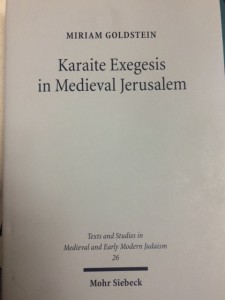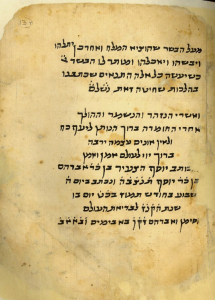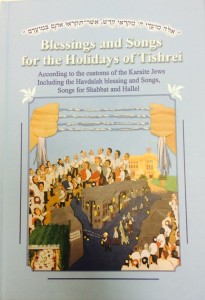Let me begin with my usual disclaimers: I’m not a Rabbanite Jew. I don’t really take sides in the internal debates within the Rabbinic community. But, given the recent attention on the Open Orthodoxy Movement and its fervent desire to ordain female rabbis within the Orthodox Community – as well as the strong opposition by others who will not accept female rabbis, I thought I’d chime in with some Karaite thoughts.
What Karaite Jews *Must* Learn from Orthodox Jews
This past Sunday, I gave a talk on The Rise and Decline of the Karaite Movement to a group in Columbia, Maryland. Before that, I spent the weekend in Baltimore with an Orthodox Rabbi affiliated with Agudath Israel.
For those who do not know, Agudath Israel is about as Orthodox as it gets in the United States. Every conversation I had was filled with insight. I learned a lot more than religion; I saw first hand what Karaites must do to survive the next generation and beyond.
8 Days in Istanbul – an Oral History of Karaites in Byzantium
As we meandered through the streets of the Karakoy neighborhood of Istanbul, Avraham (among others on separate occasions) told me something rather intriguing: Karakoy was one of the areas of Istanbul where the Karaites used to live – and in fact some people believe that Karakoy takes its name from the historical Karaite Jewish community.
I found this rather hard to believe. Could it really be that there were once so many Karaites in Istanbul, that an entire neighborhood was named after them?
Filed under Eli Shmuel, Istanbul, Karaites In Bynzantium, Karakoy, Turkey
Introducing Karaite Questions & Answers
Greetings from Turkey, where I am spending the week for work. I have visited the incredibly warm and wonderful Karaite Jewish community here; and I will do a post or two about them next week. In the meantime, I wanted to tell you about a new project I am working on: Karaite Questions & Answers.
For many years, Acting Rav Joe Pessah of the Karaite Jews of America has asked me to put together something that is the Karaite Jewish equivalent of the Jewish Book of Why. While I think the Jewish Book of Why is a great resource, I wanted to do something a little bit different.
Filed under Questions & Answers, Shechita
A Place for Rabbinic Thought in Karaite Literature?

Just finished Professor Goldstein’s book. An excellent read about a little known Karaite text, the Talkhis.
Karaite Judaism is often described as “anti-Rabbinic.” I prefer the term “non-Rabbinic”, even though there was plenty of “anti” in the early Karaite movement.
Today, I look at something that may appear incongruous: Rabbinic thought in Karaite literature.
Why I Choose to Eat “Ashkenazi” Karaite Meat
 Breaking News: Earlier this morning, the Supreme Court of the State of Israel
Breaking News: Earlier this morning, the Supreme Court of the State of Israel
ruled in favor of the Karaites in a court case against the State’s religious authorities, who had tried to prevent Karaites from slaughtering in independent slaughterhouses that were under the Rabbanut’s supervision. I dedicate this post to everyone who worked so hard on that case.
* * * *
In the Rabbinic community, there are famous debates concerning the minhagim (and halakha) of Ashkenazi and Sefardi Jews. Everyone is familiar with the Passover/kitniyot debate. And historically it was the case that if you were from an Ashkenazi family, you followed your own minhag; and your Sefardi friends followed their own.
Geographic divisions like this, tend not to exist in the Karaite community. But historically there was one debate that divided the Karaites on theological lines, and caused a rift among geographical lines that somewhat reflects the Ashkenazi/Sefardi divide in the Rabbinic community.
Filed under Aharon ben Eliyahu, Kashrut, Maimonides, Passover, Shechita, Turkey, Yisrael HaMa'aravi
Women, Blue Fringes and the Further Need to Revive Early Karaite Literature
A few weeks ago, I mentioned how Azriel Kowtek shared her passion for blue fringes and tying tzitzit with several of us who attended the KJA’s shavuot gathering. Last week, I wrote about the importance of reviving Karaite literature. And this past Shabbat, Rabbanite Jews read the Torah portion related to the commandment to wear blue fringes. [1.]
In the Rabbinic tradition, women are not required to wear blue fringes. Let’s see what the early Karaite literature says on the topic.
Filed under Judah Hadassi, Mikdash Me'at, Tallit, Techellet, Yaqub al-Qirqisani






